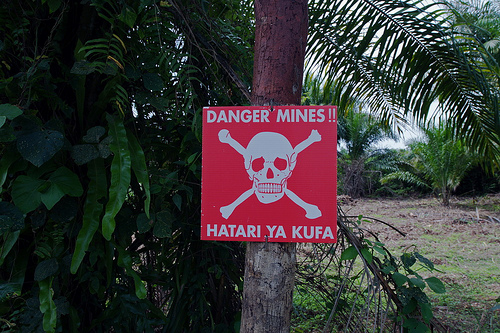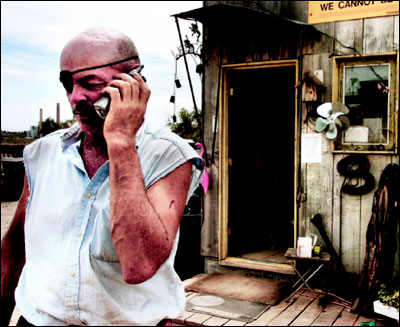 It seemed easy and straightforward enough. Fighting in the Eastern Democratic Republic of the Congo (DRC) between a variety of warring factions has resulted in the death, rape and displacement of many in the region. Based on most accounts upwards of 5.4 million people died during the official war period of 1998-2003 and some 2.7 million since 2004. Keep in mind the majority of these deaths were not from combat or fighting per se, but rather from disease. Regardless the toll is far too many and something had to be done.
It seemed easy and straightforward enough. Fighting in the Eastern Democratic Republic of the Congo (DRC) between a variety of warring factions has resulted in the death, rape and displacement of many in the region. Based on most accounts upwards of 5.4 million people died during the official war period of 1998-2003 and some 2.7 million since 2004. Keep in mind the majority of these deaths were not from combat or fighting per se, but rather from disease. Regardless the toll is far too many and something had to be done.
Two international advocacy organizations, Global Witness (based in the UK) and the Enough Project (based in the US) decided it was time to devote a great amount of their resources to the cause in attempt to influence policy makers, primarily in the US. Not only would this highly emotional issue resonate with donors, but the organizations also successfully found a way to get western consumers involved. This was done by discussing and addressing the involvement of conflict minerals, some of which end up in consumer electronics and the proceeds of which have, according to the organizations, been fueling the fighting.
Skip ahead to the amendment to Dodd-Frank, mainly a “financial reform” bill that forces companies to disclose where they source their minerals. This bill is a perfect example of addressing an extremely worthy cause from afar, without understanding the complexities of the situation and the negative externalities that come with creating a one-dimensional approach that is virtually impossible to implement in the current environment. It turns out, forcing companies to determine where the minerals they put in their products originated was far more expensive than was originally calculated when the Dodd-Frank rider was put together. In fact a recent study by Tulane University determined that the industry costs would be $7.93 billion, more than 100 times the $71.2 million the SEC believed it would cost initially. And what happens when businesses are faced with insurmountable costs levied upon them? They go elsewhere for business (or in this case resources). They can do this because these minerals, mainly columbite-tantalite (coltan), cassiterite, gold and wolframite, can be found elsewhere in the world and are much more important to the DRC economy than that of the bottom line of mining companies. Of course not all companies are doing this. Some including Motorola are attempting to comply.
Interestingly, this is, on the surface what the Enough Project, Global Witness and Dodd-Frank would like to accomplish, however we have a problem. Minerals are a huge industry thoughout an impoverished country like the DRC (not just in the east where the conflict takes place) and much of the mining that is done is done by legitimate means, by people who are attempting to make a living, not by those funding rebel (or DRC government) movements.
Now the last section concerning the impact on livelihoods is for the moment a very contentious debate and while the interest and subsequent action by western NGO’s and the US government is admirable, it’s still a great example of addressing a symptom rather than a cause. As a Congolese gentleman on a recent panel I attended said, conflict mineral legislation is not Congolese policy. Washington must work directly with Kinshasa to strengthen accountability throughout the mining sector (and the government in general) in order to end violent conflict and improve the livelihood of all Congolese – an absurdly complex and difficult, but incredibly necessary task.
Here are previous my reports on conflict minerals and Dodd-Frank.
Image Credit by unmas via Flickr under a CC license



Jonathan,
Unfortunately it’s worse than all this.
We are a Congolese-owned company trying to export coltan for Congolese miners and leave the profits in the Congo with those miners. We have contacted all the 20+ smelters of coltan in the world and all the known buyers and none of them are buying coltan from the Congo. We are not in the 15th month of this de facto embargo and hundreds of thousands of miners have moved from abject poverty to utter destitution as a result of Dodd-Frank and the public relationships disaster perpetrated by Enough Project and Global Witness on the Congolese people.
Worse yet, Enough Project has denied this de facto embargo as it does not fit their political agenda or their fundraising agenda. So we have a conference call with them to ask them to give us the names of any smelters we could sell to. They gave us two names which were not interested in buying from the Congo, then shockingly told us in that conference call that we should just sell our coltan to the two slimy Chinese companies still buying.
Here is a human rights organization telling us to sell to the worst human rights violators on earth so they can tell people we have a buyer. Do we need any other evidence Enough Project has lost their way on this issue and are no longer working to protect the human rights of the Congolese?
Just as shocking, Global Witness has pointed to the significant increase in smuggling as their proof that the embargo doesn’t exist. These groups have no interest in the human rights of the Congolese; they are making too much money off the Dodd-Frank Act.
They have also now gotten in bed with giant corporations like Motorla, HP, Intel, AVX and others to push the artisanal miners out of business once and for all. They will never have the money to go through the complex certification processes being pushed by Enough and Global.
And these groups know that targeting minerals instead of criminals is a proven failure. Following are the URLs to papers and articles written by Global Witness on the Kimberley Process which Global Witness championed to rid the world of conflict diamonds. They are patterning the conflict minerals process on Kimberley (according to ICGLR). At two years, five years, seven years, and here in 2011, Global Witness has declared the Kimberley Process an abject failure and has walked out on the process.
Yet here they go again pushing forward an identical process for minerals that they themselves have already proven won’t work. It’s called job security – push an agenda that can’t be successfully implemented, then spend the next 10 years throwing stones at the fact that i the very process they promoted doesn’t work. It’s great fundraising fodder and unconscionable at its very roots.
As Aloys Tegera of the Pole Institute in Goma, DR Congo said: “they have picked the wrong target.” We should demonizing criminals, not minerals. Get rid of the militia – that is the answer. There is no need for a certification process in Australia for coltan because there are no militia there. Enough and Global have blood on their hands.
AN ICGLR BASED TRACKING AND CERTIFICATION SYSTEM FOR MINERALS FROM THE
GREAT LAKES REGION OF CENTRAL AFRICA
As Eric Kajemba, the leader of a Congolese civil-society
group has said, “If the advocacy groups aren’t speaking for the people of
eastern Congo, whom are they speaking for?”
We know the answer – for themselves.